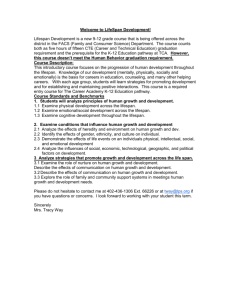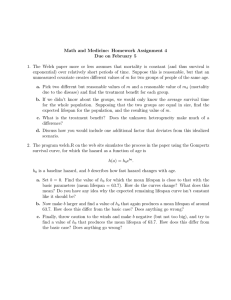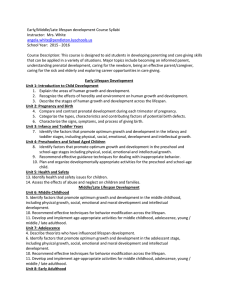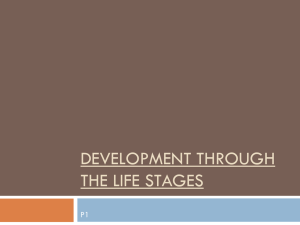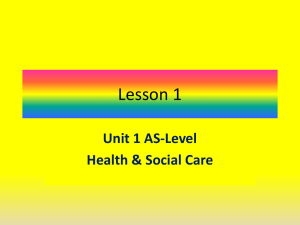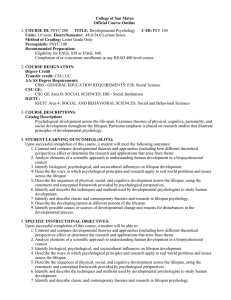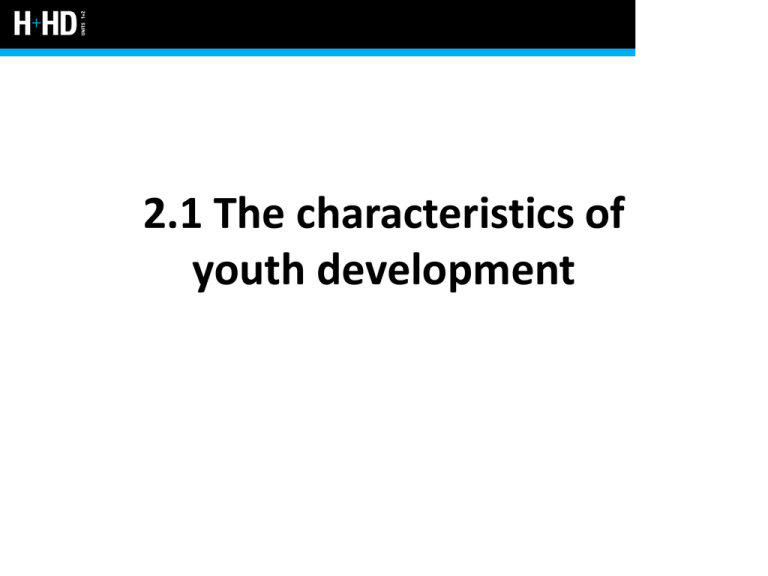
2.1 The characteristics of
youth development
What is youth?
• Period of the human lifespan between the
ages of 12 and 18 years
• The transition between childhood and
adulthood
• Other words for youth include:
– teenagers
– adolescents
Youth development
Many changes occur during youth, can you
identify some of these changes?
• The changes that occur as part of youth
development can be grouped as:
– Physical
– Social
– Emotional
– Intellectual
Physical characteristics of youth
development
• Physical development during youth is rapid,
including:
– Change in size of bones and muscles
– Change in height and weight
– Sexual development
• Primary sexual development (sex organs)
• Secondary sexual development (other changes – e.g.
hair, development of breasts and widening of hips in
females, deepening of voice and broadening of
shoulders in males)
Social characteristics of youth
development
• An important part of youth development is
forming social relationships
• Peer-group relationships are critical as is
establishing an identity and being accepted
• Self-esteem is a key characteristic of youth
development, how might positive self esteem
develop in youth? What about negative self
esteem?
Emotional characteristics of youth
development
• The youth stage of the lifespan is
characterised by individuals increasingly
understanding their emotions
• Emotional development includes:
– Learning how to understand and appropriately
manage emotions
– Coping with stress
– Managing conflict with parents
Intellectual characteristics of youth
development
• Occurs as an individual develops the capacity
to think in broader terms, to conceptualise
complex issues and to see how things are
connected
• Youth intellectual development is not only
represented by academic success, how else
might it be represented?
Summary
• Youth is the stage of the lifespan between
childhood and adulthood, 12 – 18 years
• Physical, social, emotional and intellectual
development occurs at this stage of the
lifespan
• Youth development is influenced by:
– Behavioural factors
– Environment in which a person lives
– Family and community

